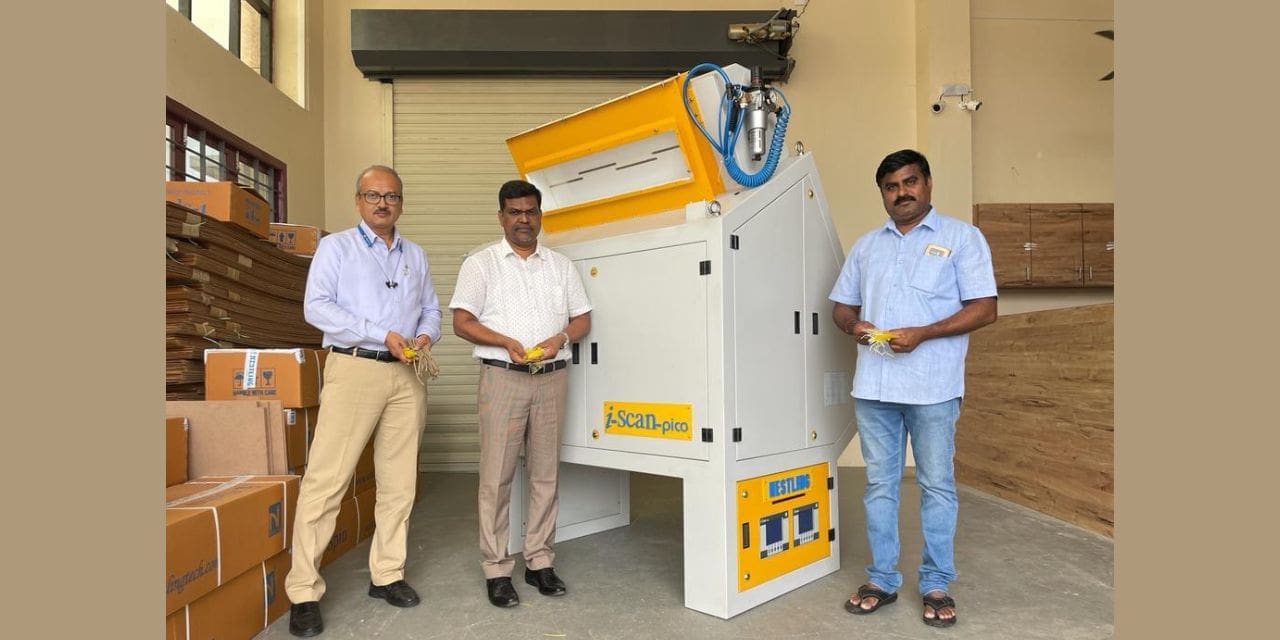By: Seshadri Ramkumar, Professor, Texas Tech University, USA
(Coimbatore, India, July 10, 2022)-Price volatility, tight supply, and moderation of demand for textiles pushes the cotton textile chain to be competitive.
During my recent trip to India, amidst stormy cotton situation, I have been fortunate to discuss with stakeholders in the entire cotton value chain to enhance the competitiveness of the sector.
Apart from market dynamics, factors such as farm productivity and getting a handle on cotton contamination needs priority attention. Plastic bale wrap is a major issue facing the global cotton sector.
Indian textile spinners are having good control of plastic, vegetable matter and metal contaminants at the spinning level due to cotton contamination detection systems.
Coimbatore-based Nestling Technologies has been a market leader in delivering cotton cleaning technologies at spinning mill level. Normally, this technology is employed in the blowroom stage in spinning, where white and colored plastic contaminants can be traced and ejected. I have been discussing with textile industry people to focus attention on plastic contamination at gin and farm levels. Chandrasekaran Somasundaram, Managing Director of Nestling Technologies agrees with the need for contamination cleaning at gin level and insists that stakeholders like farmers, ginners, mills, and machinery makers must come on a single platform to manage this critical issue. Machinery makers have technology that can be quickly adapted at gin level to have control on plastic and other contaminants, added Chandrasekaran Somasundaram.
Today, a discussion with Velmurugan Shanmugam, General Manager of Aruppukkottai-based Jayalakshmi Textiles, which is a fine count spinning mill underscores the importance of having cotton devoid of plastic contaminants at the entry level. “Mills will be interested in paying a premium of Rupees 1500 to 2000 per candy (356 Kgs) for contamination free cotton. Leaving a small porting of plastic in cotton in the early processing stages in a mill can be corrected only at autoconer stage, which is a costly affair for the industry. By having plastic free cotton can enhance the productivity of autoconer by 5%, which will be a blessing for the industry,” added Velmurugan.
With cotton prices riding high, industry must look for cost savings and quality enhancements. Plastic free cotton and better methods to catch plastics at gin level should receive due attention.

